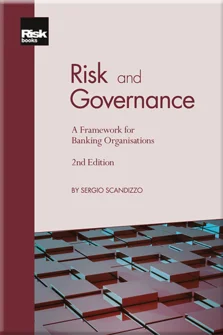Compensation
Compensation
Introduction: The Confluence of Risk and Governance
Corporate Governance, Information and Control
The Nature of Corporate Governance in Banking
Regulation and Governance
The Centrality of Risk Management
The Mission, Organisation and Governance of Risk Management
A Cartography of Banking Risks
Operations Risk in Extreme Market Conditions
Managing Legal Risk
Managing Reputation Risk
Drawing Boards: Motivations and Responsibilities in the Boardroom
Executive Compensation: Performance, Regulation and Ethics
Fair Value, Auditing and Internal Controls
Risk Management and the Role of Culture
The Board of Directors
Compensation
Auditing, Reporting and Disclosure
We saw in Chapter 11 that compensation in banking suffers from two interrelated problems: it encourages excessive risk-taking when it is tied to financial performance, and when such performance is corrected for risk, due to the cyclical nature of the measures used, it discourages risk-taking far too much in times of crisis. We also noted that, in line with both practitioners and regulators, the stated objective of executive compensation is the reward of sustainable, long-term performance as such an outcome is presumably not only good for banks themselves, but also for the stability of financial markets and ultimately for society as a whole. This suggests that, like performance, compensation should also ideally be stable and sustainable, a concept that may not sit naturally with bankers’ expectations, especially in certain business lines where the ultimate goal is exceptional performance through hopefully not completely reckless risk-taking. In other words, a compensation system that discourages excessive risk-taking is inevitably one whose elasticity to both performance and risk is lower.
Since we cannot reliably anticipate the consequences of the risks taken, let alone foresee
Copyright Infopro Digital Limited. All rights reserved.
As outlined in our terms and conditions, https://www.infopro-digital.com/terms-and-conditions/subscriptions/ (point 2.4), printing is limited to a single copy.
If you would like to purchase additional rights please email info@risk.net
Copyright Infopro Digital Limited. All rights reserved.
You may share this content using our article tools. As outlined in our terms and conditions, https://www.infopro-digital.com/terms-and-conditions/subscriptions/ (clause 2.4), an Authorised User may only make one copy of the materials for their own personal use. You must also comply with the restrictions in clause 2.5.
If you would like to purchase additional rights please email info@risk.net











